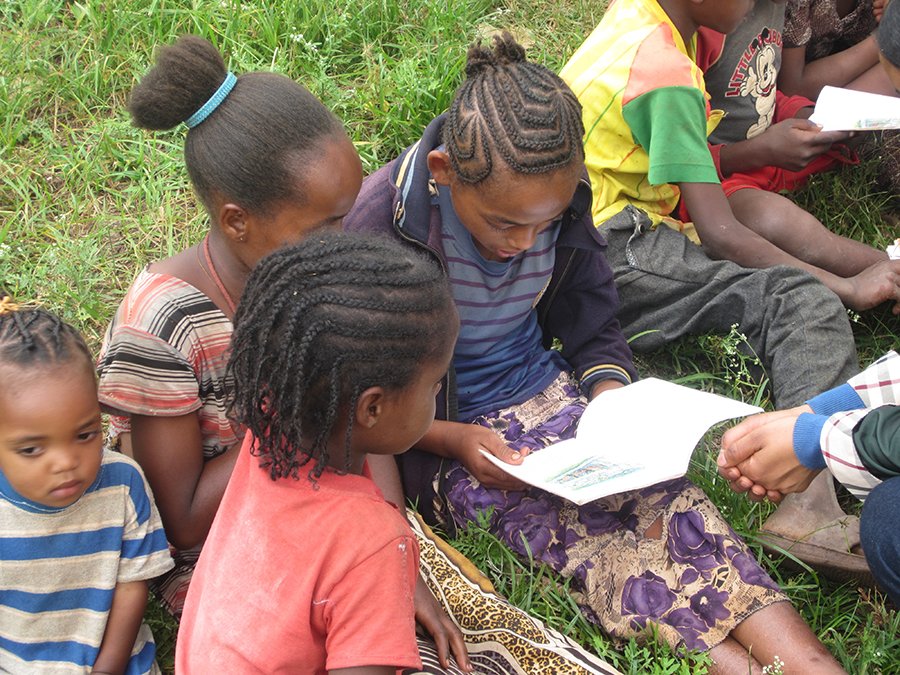Today, September 8th, the world celebrates International Literacy Day. Organizations around the world are requesting that people support literacy through book drives, donations, and new reading programs.
My wife loves to read. She reads every night and probably averages a book a week, so it was no surprise when we found out we were going to have a baby girl earlier this year that one of the top items on our baby shower registry was books. Due to the generosity of so many of our friends, our baby will have a small library of storybooks that we can read to her and eventually she can read on her own.
As I began to think of the books our daughter would have access to and the opportunities that reading could open up to her, I contrasted that with the opportunities and access to books that so many of the children Nuru’s education program serves in Kenya and Ethiopia. Most families are lucky if they have a storybook or two in their house. Books outside of schools are rare, especially children’s books. Libraries are, for the most part, nonexistent.
If you are reading this right now, you probably had access to books as a child, or at some point in your schooling career that helped you learn how to read. I want that for my daughter, but I also want that for children all over the world. Today, an estimated 775 million lack minimum literacy skills according to UNESCO. This lack of literacy can be directly attributable to the lack of books. USAID estimates 250 million children cannot read and one of the major issues is lack of reading materials. USAID and partners are attempting to create a Global Book Fund to increase the supply of books for children to practice reading. This is an important initiative, but will take time. Meanwhile, children in the rural areas and Kenya and Ethiopia we work with are passing through school without storybooks to help them learn to read. This isn’t right. Let’s make a difference together.


